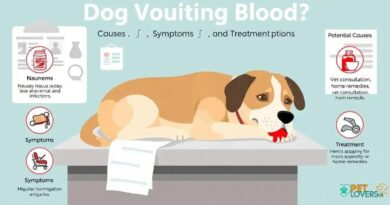What is ideal dog feeding schedules
Understanding Ideal Dog Feeding Schedules
When it comes to the question of what is ideal dog feeding schedules, it’s essential to recognize that each dog is unique, and their feeding schedule should reflect their individual needs. Factors such as age, breed, size, and activity level play a crucial role in determining how often and how much to feed your canine companion. Establishing a consistent feeding routine not only helps in maintaining your dog’s health but also aids in behavioral training.
Factors Influencing Feeding Schedules
Several factors influence what is ideal dog feeding schedules. Puppies, for instance, require more frequent meals due to their rapid growth and high energy levels. Typically, feeding a puppy three to four times a day is recommended. As dogs mature into adulthood, their feeding frequency can be reduced to twice a day, which is generally sufficient for most breeds. Senior dogs may also have different dietary needs, requiring adjustments in both the quantity and frequency of their meals.
Age-Specific Feeding Recommendations
Understanding the age-specific feeding recommendations is vital when discussing what is ideal dog feeding schedules. Puppies need nutrient-rich food to support their growth, while adult dogs benefit from a balanced diet that maintains their weight and energy levels. Senior dogs often require specialized diets that cater to their slower metabolism and potential health issues. Tailoring the feeding schedule according to your dog’s life stage ensures they receive the proper nutrition at every phase of their life.
Portion Control and Meal Size
Another critical aspect of what is ideal dog feeding schedules is portion control. Feeding your dog the right amount of food is essential to prevent obesity and related health issues. The portion size should be determined based on your dog’s weight, age, and activity level. Consulting with your veterinarian can provide personalized recommendations on how much to feed your dog at each meal, ensuring they maintain a healthy weight and receive adequate nutrition.
Consistency is Key
Consistency in feeding times is a fundamental principle of what is ideal dog feeding schedules. Dogs thrive on routine, and having set meal times can help regulate their digestive system and prevent behavioral issues such as begging or scavenging. Aim to feed your dog at the same times each day, creating a predictable environment that fosters good habits and a sense of security for your pet.
Adjusting Feeding Schedules for Activity Levels
Adjusting feeding schedules based on your dog’s activity levels is another important consideration in what is ideal dog feeding schedules. Active dogs may require more calories and, consequently, more frequent meals to sustain their energy. Conversely, less active dogs may need fewer meals and smaller portions to avoid weight gain. Monitoring your dog’s activity and adjusting their feeding schedule accordingly can help maintain their overall health and well-being.
Hydration and Its Importance
While discussing what is ideal dog feeding schedules, it’s crucial not to overlook the importance of hydration. Fresh, clean water should always be available to your dog, regardless of their feeding schedule. Proper hydration supports digestion, nutrient absorption, and overall health. Ensure that your dog drinks enough water, especially after meals or during hot weather, to keep them hydrated and healthy.
Transitioning Between Different Foods
When changing your dog’s diet, understanding what is ideal dog feeding schedules becomes even more critical. A gradual transition between different types of food can help prevent digestive upset. Start by mixing a small amount of the new food with the old food, gradually increasing the new food’s proportion over a week or so. This method allows your dog to adjust to the new diet while maintaining a consistent feeding schedule.
Monitoring Your Dog’s Health
Regularly monitoring your dog’s health is essential when considering what is ideal dog feeding schedules. Keep an eye on their weight, coat condition, and energy levels to ensure that their diet and feeding schedule are meeting their needs. If you notice any changes in your dog’s health or behavior, consult your veterinarian for advice on adjusting their feeding routine or diet.
Consulting with a Veterinarian
Finally, consulting with a veterinarian is a crucial step in determining what is ideal dog feeding schedules for your pet. They can provide tailored advice based on your dog’s specific needs, health conditions, and lifestyle. Regular check-ups and discussions about your dog’s diet can help ensure that they remain healthy and happy throughout their life.



